Cognitive Development Normal Geometry Worksheets for Ages 4-6
7 filtered results
-
From - To
Discover our engaging Cognitive Development Normal Geometry Worksheets specifically designed for children ages 4-6. These worksheets are expertly crafted to enhance young learners' cognitive skills while introducing them to fundamental geometric concepts. Through fun, interactive exercises, children will practice recognizing shapes, understanding spatial relationships, and learning basic geometry vocabulary. Boost your child's critical thinking, problem-solving, and reasoning abilities with these easy-to-use resources. Perfect for teachers, parents, and caregivers looking to support early math education and cognitive growth at home or in the classroom. Spark the joy of learning with our effective and educational geometry worksheets!
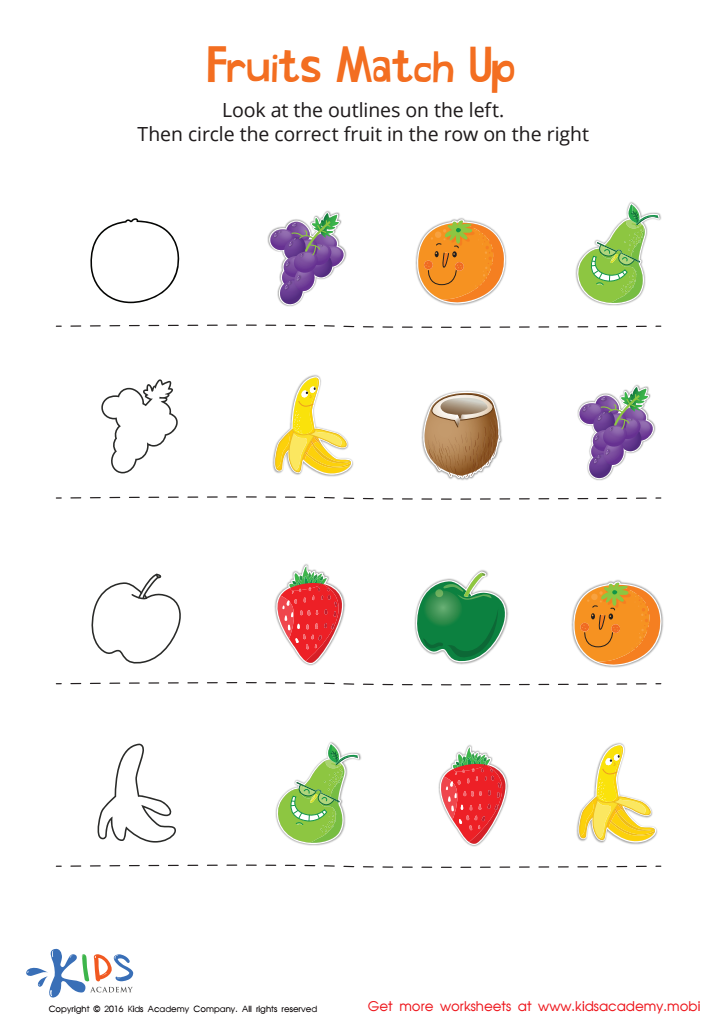

Fruits Match Up Worksheet
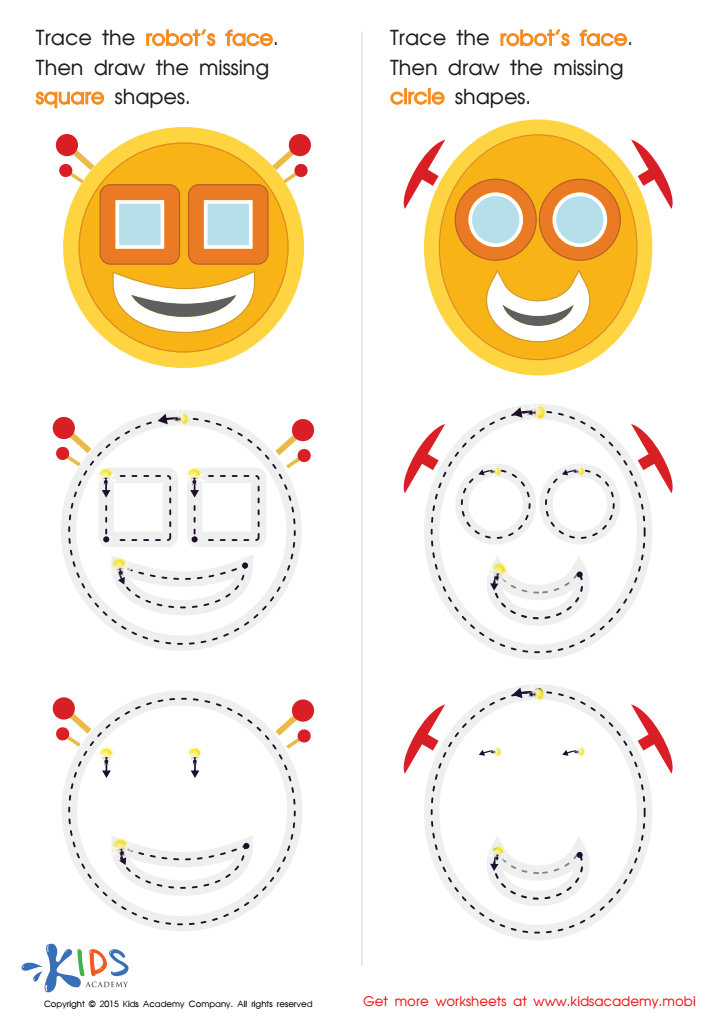

Practicing to Draw Circles And Squares Printable
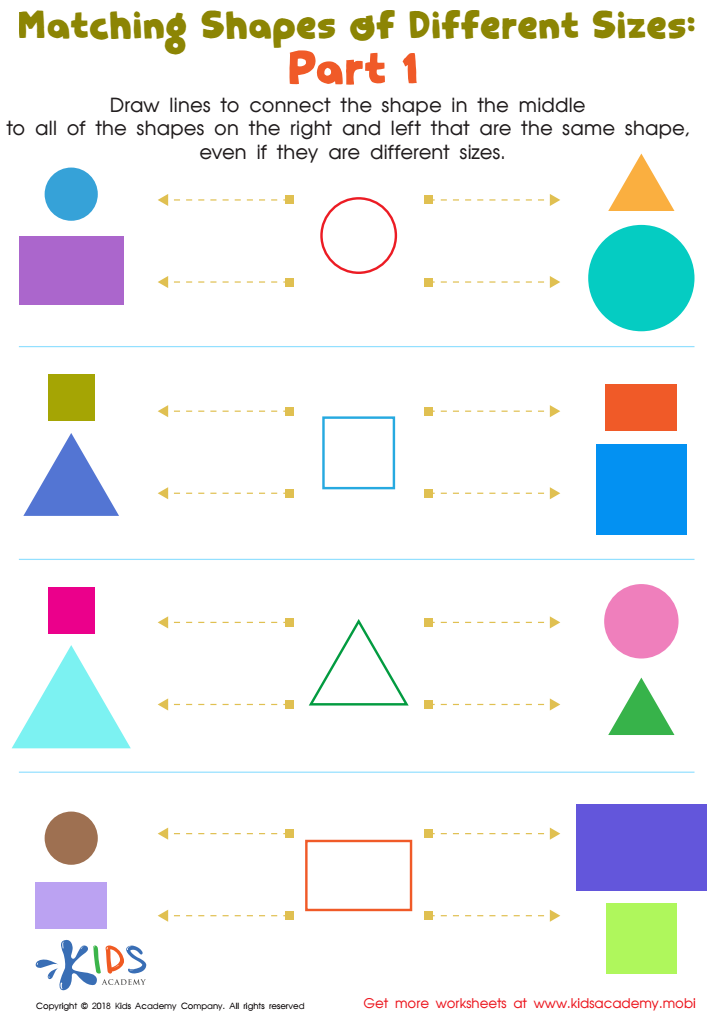

Geometry: part 1 Worksheet


Preschool Geometry Match Up Worksheet
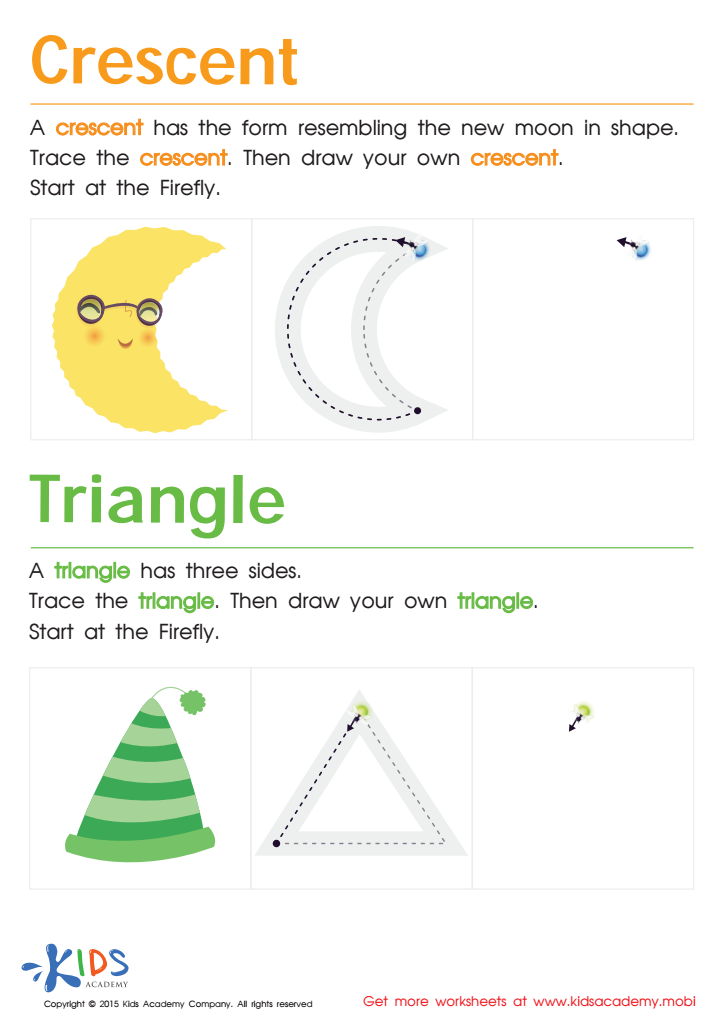

Learning to Draw Crescents And Triangles Worksheet
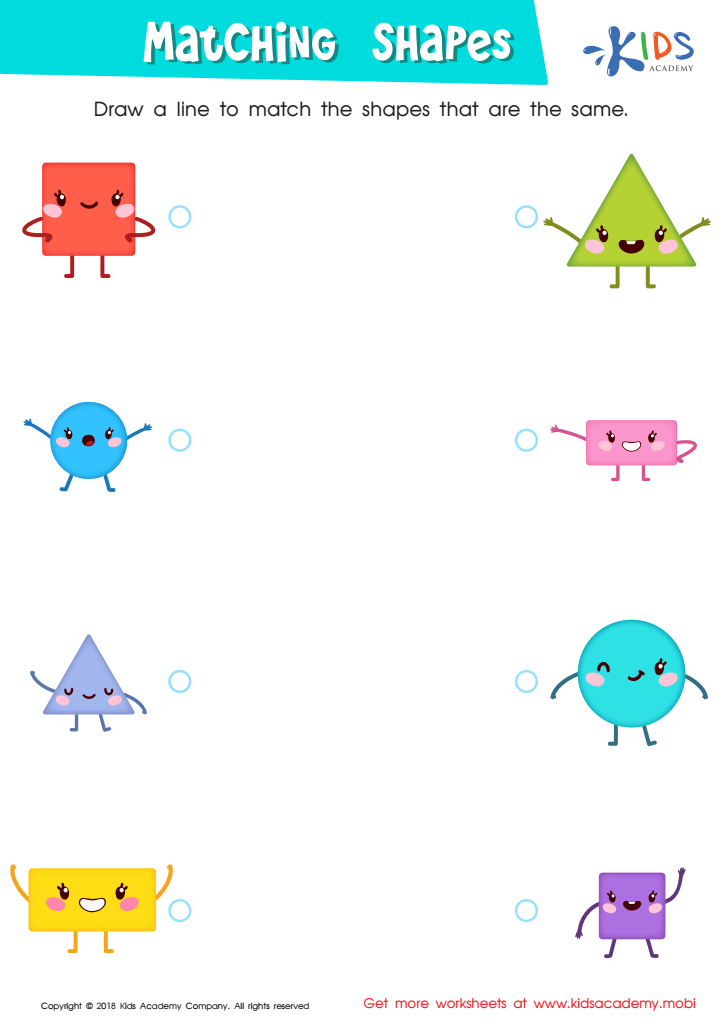

Matching Shapes Worksheet
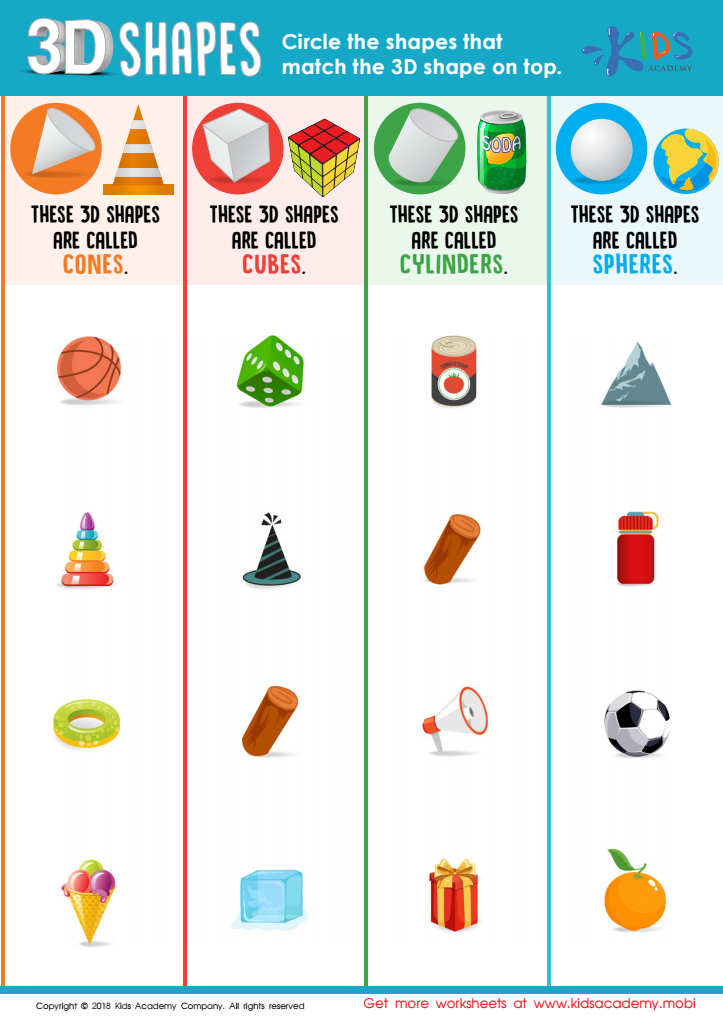

3D Shapes Worksheet
Cognitive development is crucial for young children, and exposing them to normal geometry at ages 4-6 can significantly enhance their early education. During these formative years, children's brains are highly neuroplastic, meaning they can easily form and reorganize connections needed for learning. Engaging with basic geometric concepts like shapes, patterns, and spatial reasoning fosters critical thinking skills and lays the groundwork for future mathematical understanding.
Understanding geometry at an early age helps children develop spatial awareness, which is fundamental not only in math but also in daily problem-solving and coordinating physical activities. For example, recognizing shapes helps children navigate their environment more effectively, improving their motor skills.
Furthermore, geometry introduces young learners to abstract thinking. When children sort objects based on shapes or complete puzzles, they develop logic and reasoning abilities that are crucial across many academic disciplines. It also encourages mental visualization, aiding in reading comprehension as they begin to imagine stories and plotlines.
Parental and teacher involvement in this cognitive development phase means creating environments filled with educational play that involves geometric exploration. Activities like building blocks, drawing, and shape-matching games can stimulate curiosity and engagement. Investing time in these foundational skills will build confidence and foster a lifelong love of learning in children.
 Assign to My Students
Assign to My Students


























